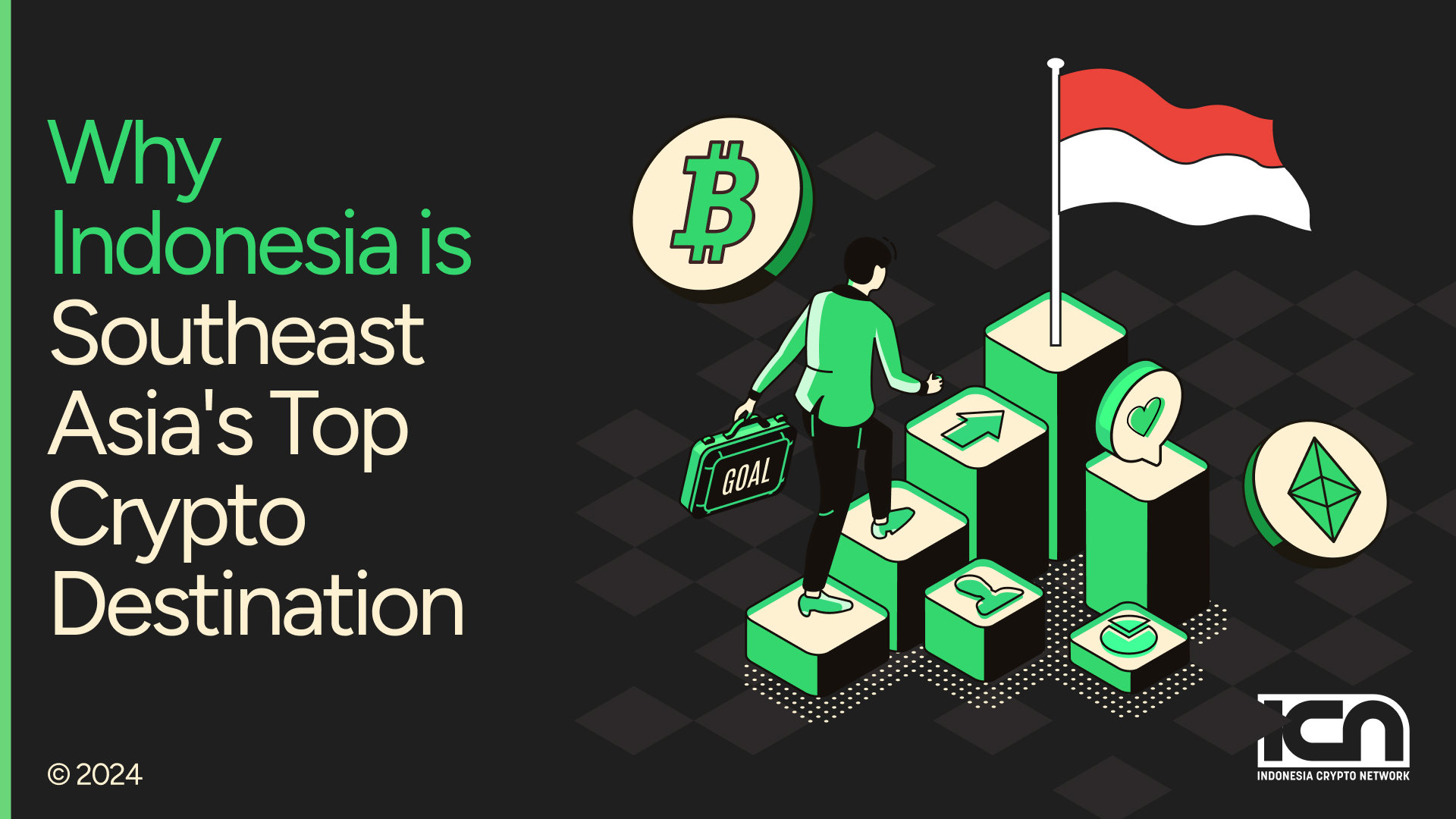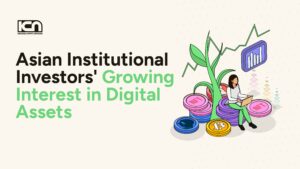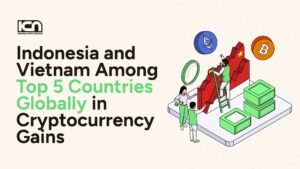TL;DR
- In 2024, Indonesia became the 3rd largest crypto market globally, with 20.9M users and US$9.1B in transactions.
- The government treats crypto as a tradable commodity with a transparent taxation system.
- Indonesia promotes “digital downstreaming,” equipping young people with blockchain and digital tech skills.
- Over 1,600 companies with blockchain categories are registered in the country.
- With strong adoption, government support, and regulatory clarity, Indonesia offers a stable, investor-friendly environment.
Indonesia is emerging as the next big player in Southeast Asia’s crypto landscape. With explosive growth in crypto adoption, regulatory shifts that invite innovation, and a government dedicated to building a digital economy, Indonesia offers unique opportunities for investors.
But what sets Indonesia apart from other Southeast Asian markets? In this article, we explore why Indonesia is the next major crypto hub, what makes it distinct in the region, and why investors should seize this opportunity before it’s too late.
Growing Adoption and Transactions
In 2024, Indonesia climbed to 3rd place globally in crypto adoption, up from 7th in 2023. The country now hosts over 20.9 million crypto users and recorded US$9.1 billion in transaction volume this year alone.
The market’s momentum is driven by a large and youthful population, coupled with a thriving tech-savvy, degen culture eager to embrace digital assets. Indonesia recorded US$9.1 billion in transaction volume, highlighting the increasing enthusiasm for crypto and solidifying the country’s role as a major player in the global crypto scene.
Read more: Dominate Indonesia’s Crypto Market with ICN’s Expertise
Surging Blockchain Ecosystem
Indonesia’s blockchain ecosystem is rapidly expanding, with 1,629 companies registered as of September 2023 under the Ministry of Communication and Informatics (Kominfo) for “Blockchain Technology Development.” These companies span sectors like DeFi and NFTs, with new startups emerging regularly.
The country’s funding ecosystem is also thriving, as demonstrated by Pintu, one of Indonesia’s largest crypto exchanges, securing US$35 million in Series A funding, and Reku raising significant funds backed by AC Ventures.
In comparison, countries like Thailand and Singapore see growth in DeFi and institutional finance but remain niche markets. Vietnam and the Philippines are progressing in gaming and NFTs, yet regulatory uncertainty hinders major long-term investments.
Read more: SEA Crypto Market: A Race to a Balanced Ecosystem Between Adoption and Regulation
The Clear Regulatory Environment
What sets Indonesia apart from other crypto industries in Southeast Asian countries is its forward-thinking regulatory landscape, which strikes a balance between fostering innovation and protecting consumers.
Currently, Indonesia’s crypto regulations, overseen by BAPPEBTI (Commodity Futures Trading Regulatory Agency), treat crypto as a tradable commodity. While crypto cannot yet be used for payments, its status as a legally tradable asset on futures exchanges provides clarity and security for businesses and investors.
But Indonesia’s regulatory framework isn’t static—it’s evolving. By 2025, regulatory oversight will transition to the Financial Services Authority (OJK), which is expected to tighten consumer protection and market transparency while encouraging innovation through a regulatory sandbox. This sandbox allows startups and companies to test their blockchain and crypto products in a controlled environment, ensuring compliance before full market entry.
Another key element of Indonesia’s regulatory structure is its transparent approach to crypto taxation that was introduced in May 2022, imposes income tax (PPh) on sellers and Value Added Tax (VAT) on buyers. Registered sellers are taxed at 0.1% PPh and 0.11% VAT, while unregistered sellers face higher rates at 0.2% PPh and 0.22% VAT. This structured approach has already generated IDR 914.2 billion in tax revenue from 2022 to September 2024, reflecting the government’s commitment to integrating crypto into the formal economy.
Read more: 6 Reasons Why Crypto Companies Can’t Ignore Indonesia
Government Support for Digital Innovation
Indonesia’s leadership understands that the future lies in digital technology, and they are preparing accordingly. Vice President Gibran Rakabuming Raka has emphasized digital downstreaming, focusing on equipping young people with skills in blockchain, AI, big data, and cybersecurity. This focus ensures that Indonesia is not only a crypto hub today but will remain one for the future.
This vision extends beyond crypto and blockchain—it’s about preparing a skilled workforce ready to take on the challenges of tomorrow’s economy. With initiatives designed to foster digital literacy and innovation, Indonesia is building a talent pool that will be a key driver of growth in its crypto and blockchain sectors for years to come.
Compared to countries like Vietnam and the Philippines, where crypto adoption is driven largely by grassroots initiatives or remittance needs, Indonesia stands out for its top-down approach. By combining widespread adoption with government-backed infrastructure, Indonesia creates an environment that is stable and inviting for long-term investment.
Ready to Enter Indonesia Crypto Market?
With its clear regulatory framework, strong government support, and thriving ecosystem, Indonesia has set itself apart as Southeast Asia’s leading crypto destination. As the market continues to grow, investors and businesses are presented with unparalleled opportunities to tap into one of the world’s fastest-growing crypto markets.
Ready to explore what Indonesia has to offer? Book a call with Indonesia Crypto Network (ICN) today and let us help you navigate this exciting market, build local partnerships, and stay compliant with evolving regulations.




